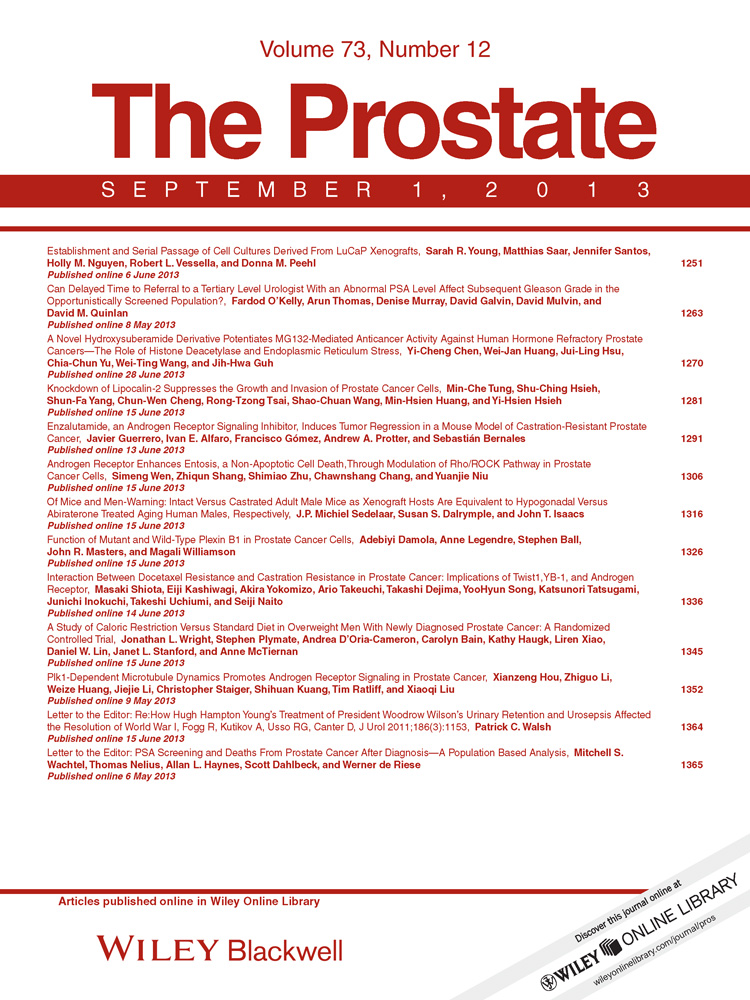Plk1-dependent microtubule dynamics promotes androgen receptor signaling in prostate cancer
ABSTRACT
BACKGROUND
The androgen receptor (AR) signaling continues to be essential in castrate-resistant prostate cancer (CRPC). Taxel-based chemotherapy is the current standard treatment for CRPC patients. Unfortunately, almost all patients eventually develop resistance toward this chemotherapy. Significantly, it was recently found that the anti-tumor effect of paclitaxel in CRPC is due to its inhibition of AR activity via its inhibition of microtubule dynamics. Polo-like kinase 1 (Plk1), a critical regulator in many cell cycle events, is elevated in prostate cancer (PCa) and linked to tumor grades. Of note, we have previously shown that Plk1 phosphorylates CLIP-170 and p150Glued, two important regulators of microtubule dynamics.
METHODS
We compared paclitaxel-mediated phenotypes (inhibition of the AR signaling, decrease of microtubule dynamics and cell death) of PCa cells expressing different forms of CLIP-170 and p150Glued with different Plk1 phosphorylation states.
RESULTS
We show that Plk1 phosphorylation of CLIP-170 and p150Glued affects cellular responses to paclitaxel. Expression of Plk1-unphosphorylatable mutants of CLIP-170 and p150Glued results in increased paclitaxel-induced apoptosis, increased protein degradation of the AR, and decreased nuclear accumulation of the AR in response to androgen in prostate cancer cells. Finally, we show that cells expressing unphosphorylatable mutants of CLIP-170 have defective microtubule dynamics, thus providing a new mechanism to understand how Plk1-associated kinase activity promotes constitutive activation of AR signaling in CRPC.
CONCLUSIONS
Our data suggest that a combination of inhibition of Plk1 and paclitaxel might be a novel avenue for treatment of CRPC. Prostate 73:1352–1363. © 2013 Wiley Periodicals, Inc.




